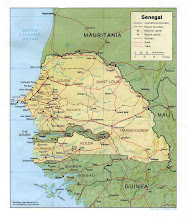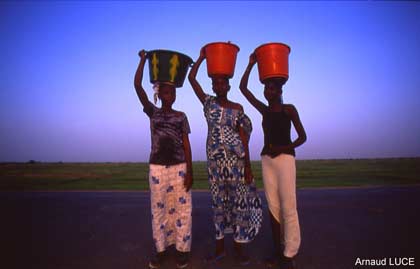Senegal needs a massive investment in infrastructure, according to a World Bank official. Doubling the country's investment to improve power and transportation would allow private industry to untap an "enormous" economic potential, said Clemencia de Mastle, the bank’s coordinator for infrastructure diagnosis.
Poor infrastructure costs Senegal per capita GDP growth of 1.3 percentage points each year, with average transport speeds of less than 6 kilometers (3.7 miles) an hour, de Mastle said, citing an Africa-wide investigation of public services.
“This has an immense impact on Senegal’s competitiveness,” she said. “The energy situation is catastrophic.”
Senegal needs to add generating capacity of at least 258 megawatts, with consumers currently relying on private generators for 25 percent of their power needs, up from 7 percent at the beginning of the decade, the study found.
The country is currently investing $911 million in public works projects a year, including power plants and a system of highways around the capital, an amount that is just 55 percent of the World Bank’s suggested infrastructure spending, according to the report.
Meanwhile, the government banned a Dakar demonstration protesting the lack of power. The government recently said that state-controlled energy provider was facing technical and financial problems and that the more than usual power outages were due to the "accidental use" of contaminated fuel which had damaged engines that run power plants.
As Senegal's ageing power plants are unable to keep up with rising demand, a 125 megawatt coal-fired plant is scheduled to be built and will only be ready by the end of 2012.
Sunday, August 1, 2010
Subscribe to:
Post Comments (Atom)



No comments:
Post a Comment